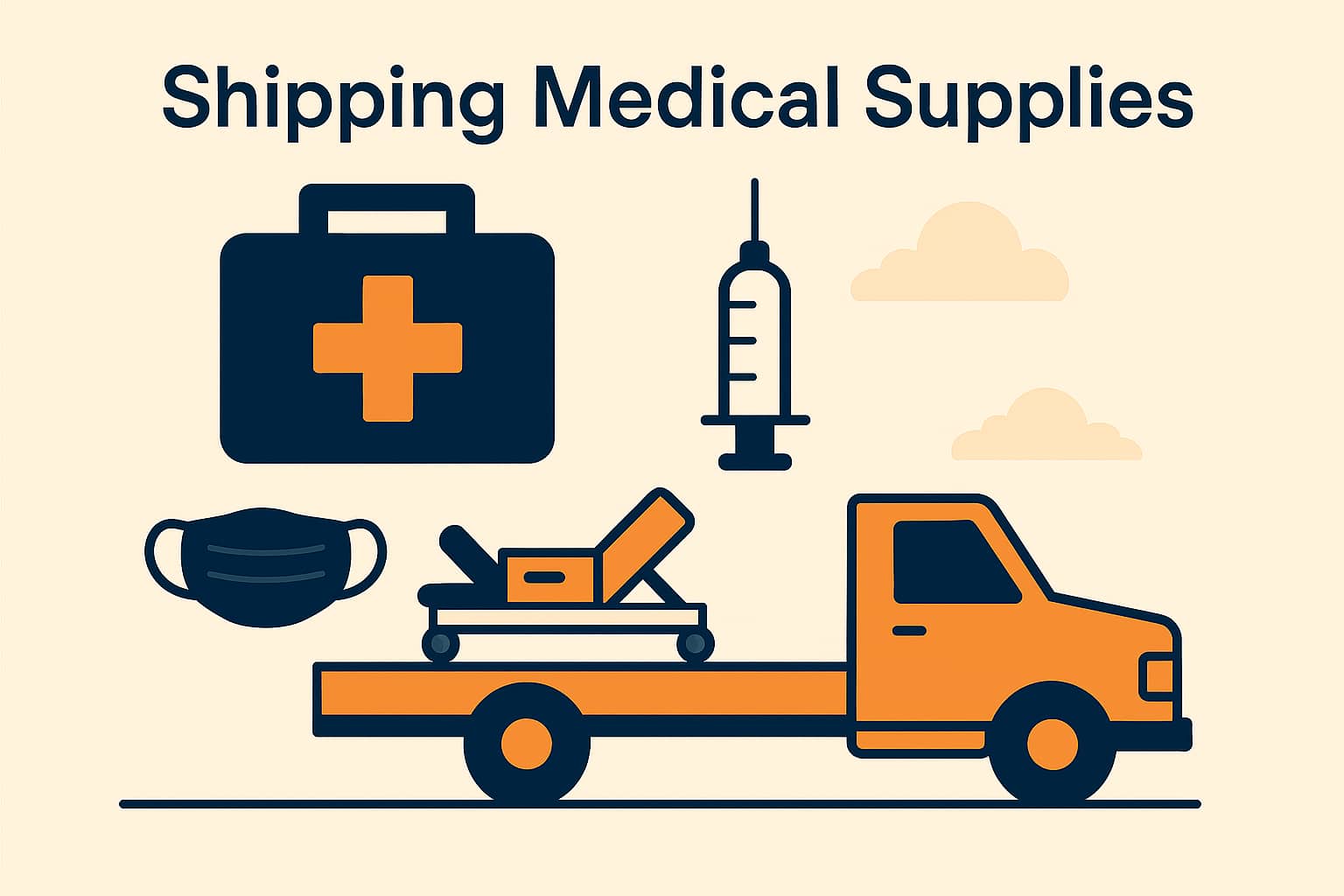How to Ship Freight Between the U.S. and Canada
Shipping freight across the U.S.-Canada border is easier than you might think. With the right carrier and documents, your goods move smoothly. This guide explains how to ship freight to and from Canada using FTL, LTL, and rail options. Let’s explore how to expand your reach into this valuable market.
U.S.-Canada Freight Trade Overview
Trade between the U.S. and Canada exceeds $535 billion annually. Ground shipping handles most of this freight. Because of strong trade ties, shipping is efficient and reliable. Choosing an experienced carrier simplifies the process and reduces delays. With proper planning, your freight reaches Canadian destinations quickly and safely.
Why Work with Cross-Border Carriers
Professional carriers often employ customs coordinators. These experts understand current regulations and ensure smooth border crossings. Since 2013, Canada’s ACI rules require advanced shipment data. Carriers with customs support help you avoid delays. If your carrier lacks this service, stay updated on customs changes to remain compliant.
Shipping Freight from the U.S. to Canada
You can ship freight by FTL, LTL, or rail. A logistics expert helps you choose the best method and secure competitive rates. They also manage scheduling and documentation. This allows you to focus on your business while your freight moves efficiently across the border.
FTL (Full Truckload) Shipping
Full Truckload shipping for large cargo is ideal for large loads. Your freight fills a 48- or 53-foot trailer. It travels directly to Canada without transfers. You pay for the entire truck and fuel costs. This method offers speed, security, and control over your shipment.
LTL (Less Than Truckload) Shipping
Cost-effective LTL shipping options suit smaller loads. Your freight shares space with other shipments heading in the same direction. You pay based on size, weight, and fuel share. Many carriers offer pallet-based pricing. This option is cost-effective and flexible for small businesses.
Intermodal Rail Shipping
Intermodal rail freight solutions work well for long distances. Your carrier coordinates train schedules and customs clearance. Rail is often cheaper than trucking alone. It’s ideal when your freight travels far before crossing the border. Your logistics manager ensures smooth coordination and timely delivery.
Required Documents for U.S. to Canada Freight
You need a Canada Customs Invoice (CCI) and a Bill of Lading (BOL). These documents list product details, origin, and value. A customs broker ensures everything is correct and submitted on time. Carriers can help arrange this service or you can contact brokers directly.
Avoiding Border Delays
Canada requires shipment data before arrival. Provide your carrier with all details before pickup. This allows pre-screening and prevents delays. Most carriers include basic insurance. You can add extra coverage for high-value goods. Planning ahead ensures smooth delivery and peace of mind.
Shipping Freight from Canada to the U.S.
Canada offers FTL, LTL, flatbed, and rail options for U.S. shipments. Carriers provide competitive rates and customized services. Many offer door-to-door delivery across North America. Dual-method shipping (truck and rail) helps meet tight deadlines and reduce costs.
Trucking Options from Canada to the U.S.
Choose from several trucking services:
- Hot Shot Trucks: Vans and dock trucks with lift gates.
- Line Haul: Direct routes between major airports.
- Premium LTL and TL: Fast delivery with great rates.
- Padded Vans: Safe transport for fragile items.
Rail shipping is also available. It’s ideal for long Canadian routes before crossing into the U.S. Your logistics expert arranges the best method based on cost and timing.
Customs Requirements for Canada-to-U.S. Freight
Customs rules mirror those for U.S.-to-Canada shipments. You’ll need a BOL, CCI, and a customs broker. Brokers handle paperwork and ensure compliance. Proper documentation speeds up border clearance and protects your shipment from delays.





